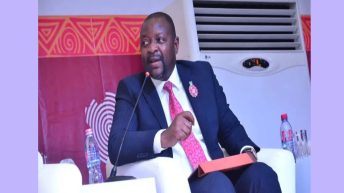By Eteteonline
Following President Bola Tinubu’s acceptance of a 15% gasoline import levy, petroleum marketers have warned that the price of Premium Motor Spirit, also known as petrol, could reach N1,000 per litre at the pump.
The government’s plan to safeguard domestic refiners and curb the flow of cheaper imports that jeopardize domestic refining investments includes the new regulation, which will go into effect on November 21, 2025, following a 30-day transition period.
The goal of the program is to stabilize the downstream market and safeguard nearby refineries. Tinubu ordered the tariff to be implemented immediately as part of what the government called a “market-responsive import tariff framework” in a letter dated October 21, 2025, which was made public on October 30, 2025. The letter was addressed to the Attorney-General of the Federation and Minister of Justice, the Federal Inland Revenue Service, and the Nigerian Midstream and Downstream Petroleum Regulatory Authority.
Marketers warn that the initiative would backfire and make retail pricing unaffordable for the typical Nigerian. According to depot operators, the decision may result in a further increase in the price of gasoline, which now costs about N920 per liter in several regions of the nation. They have been complaining that people will suffer even more as a result of the program. They contend that the increased import tax may lead to further price increases and exacerbate consumer misery in the absence of a defined framework to stabilize market dynamics and guarantee fair competition.
Some have contended that the strategy would have both advantages and disadvantages, noting that it may encourage domestic refining while discouraging importation. The 15% fuel import tax has ramifications of its own. The price may go up, but if it does, importers will be deterred from bringing in fuel if it gets too costly. There will be repercussions if the local refiners fail. There can be a shortage and no other options for folks. Thus, it has both advantages and disadvantages.
Renovating the refineries at Port Harcourt, Warri, and Kaduna is the recommendation given to regional refiners, particularly the Nigerian National Petroleum Company Limited. To revitalize the refineries, the new NNPC management ought to attract investment. Many issues will be resolved if all NNPC refineries are able to join.
Billy Gillis-Harry, the National President of the Petroleum Products Retail Outlet Owners Association of Nigeria, characterized the 15% tariff as a win-win scenario and emphasized that while it is not a completely novel policy, it would be tested.
In order to bring import prices into line with domestic market realities, the proposal called for the imposition of a 15% tariff on the price, insurance, and freight value of imported gasoline and diesel. The new Tax Act’s additional 5% tax on imported and domestically produced fuel, which will take effect in January 2026, is distinct from the tariff.
Based on an average daily consumption of 19.26 million litres as of September 2025, the letter’s predictions indicate that the 15% import tariff might raise the landing cost of fuel by an estimated N99.72 per litre. This results in daily import expenses and government revenue of an extra N1.92 billion. The Nigerian Midstream and Downstream Petroleum Regulatory Authority oversees verification and clearance, and payments must be transferred into a specific Federal Government revenue account run by the Nigeria Revenue Service.
The move coincides with Nigeria’s increased efforts to increase domestic refining and lessen reliance on petroleum imports. Modular refineries in the states of Edo, Rivers, and Imo have begun small-scale gasoline refining, while the 650,000 barrels per day Dangote Refinery in Lagos has begun producing diesel and aviation fuel. But even with these improvements, over the 15 months from August 2024 to October 10, 2025, up to 69% of the country’s demand for gasoline still comes from imports. Sections 21 and 22 of the Petroleum Industry Act, which give the Nigerian Midstream and Downstream Petroleum Regulatory Authority (NMDPRA) the authority to require licensees to perform public service in order to support economic growth and national energy security, support the tariff. The President may also give the regulator policy guidelines to implement such measures in accordance with Section 3(4) of the PIA.
The presidential instruction requires the NMDPRA to prioritize locally refined products when issuing import licenses, while also issuing the required regulations and publishing them in the gazette. In order to monitor developments and decide whether tariff modifications or sunset clauses are required, the regulator would also work with the Implementation Committee on Crude and Refined Products Sales in Naira.





Add comment